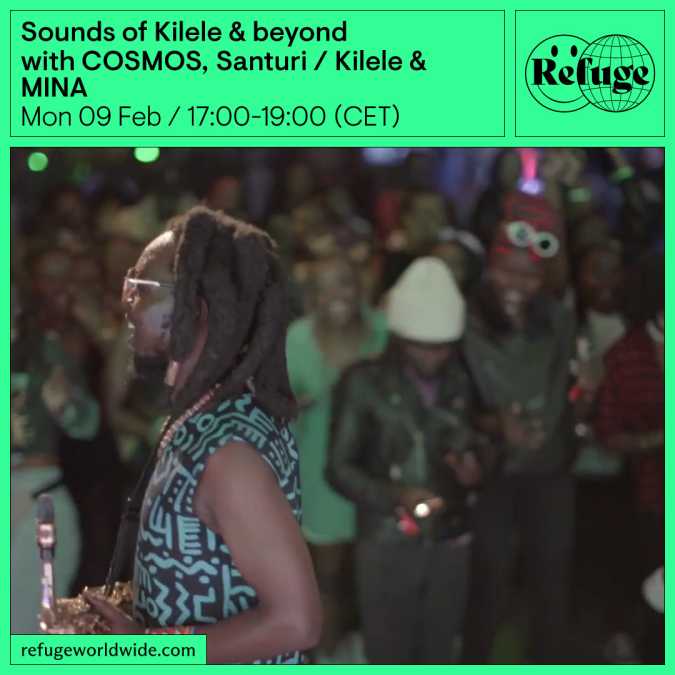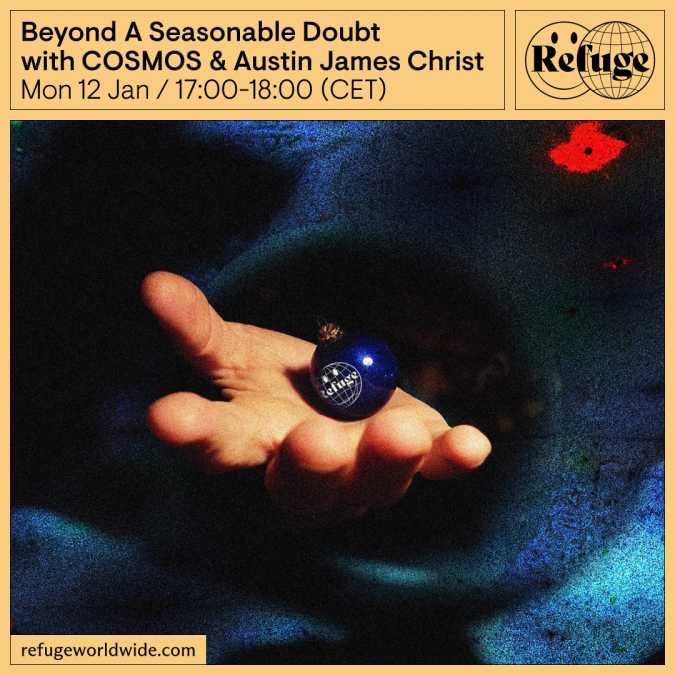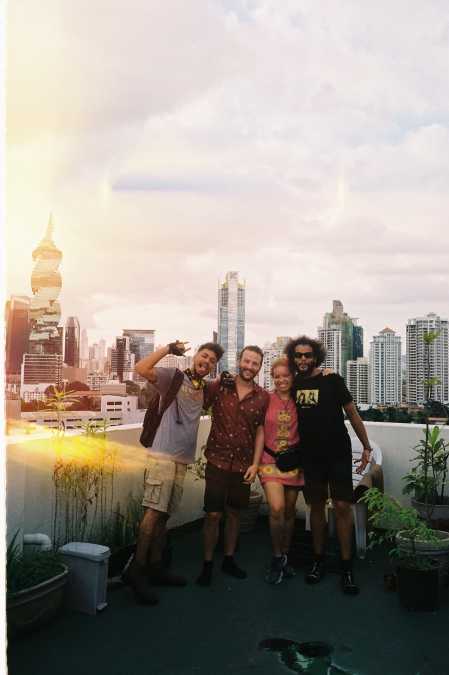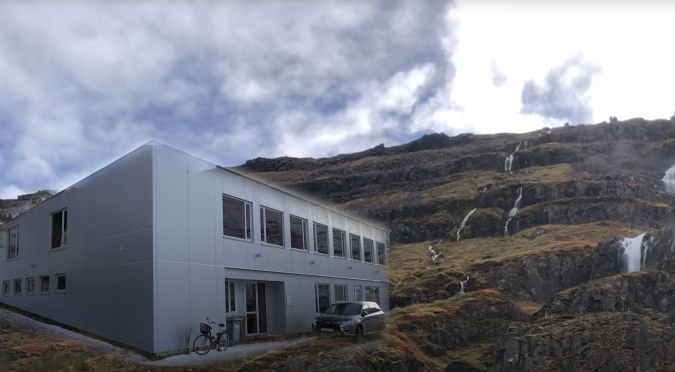COSMOS x U? announce their 2024 Embassy in Utrecht, the Netherlands
For the first time since its inception, U? – Le Guess Who’s freely accessible city program – enlists five Community Curators from different cities, to bring fresh new perspectives to the Utrecht’s subcultural network. What they all have in common is an emphasis on community and activism.
U? is the participative and freely accessible city program of Le Guess Who?. Amplifying local communities from the fringes, U? is Utrecht’s radical playground for experimentation, co-creation and conversation.
Defne Yalman is the coordinator of U?. In her academic and practical work, she bridges theory and practice through activism, transnational solidarity networks and civil society projects.
Insan Larasati is a Rotterdam/Berlin-based community organizer, DJ, designer and inclusivity officer who focuses on the Indonesian diaspora and organizes Indoqueer club nights and art exhibitions. Their research-driven and collaborative practice is based around community organizing and queer diasporic identities, with their work being heavily influenced by their life as a queer person of color, their history as a child of immigrants and political activists, and their experience working in EDI (Equity, Diversity and Inclusivity). Insan is one of this year's U? Community Curators.
Here, Gloria Ma discusses community organizing, identity, and finding your peers in different circumstances with Defne Yalman and Insan Larasati.
Interview by Gloria Ma
Photos courtesy of Mirel Masic and Insan Larasati
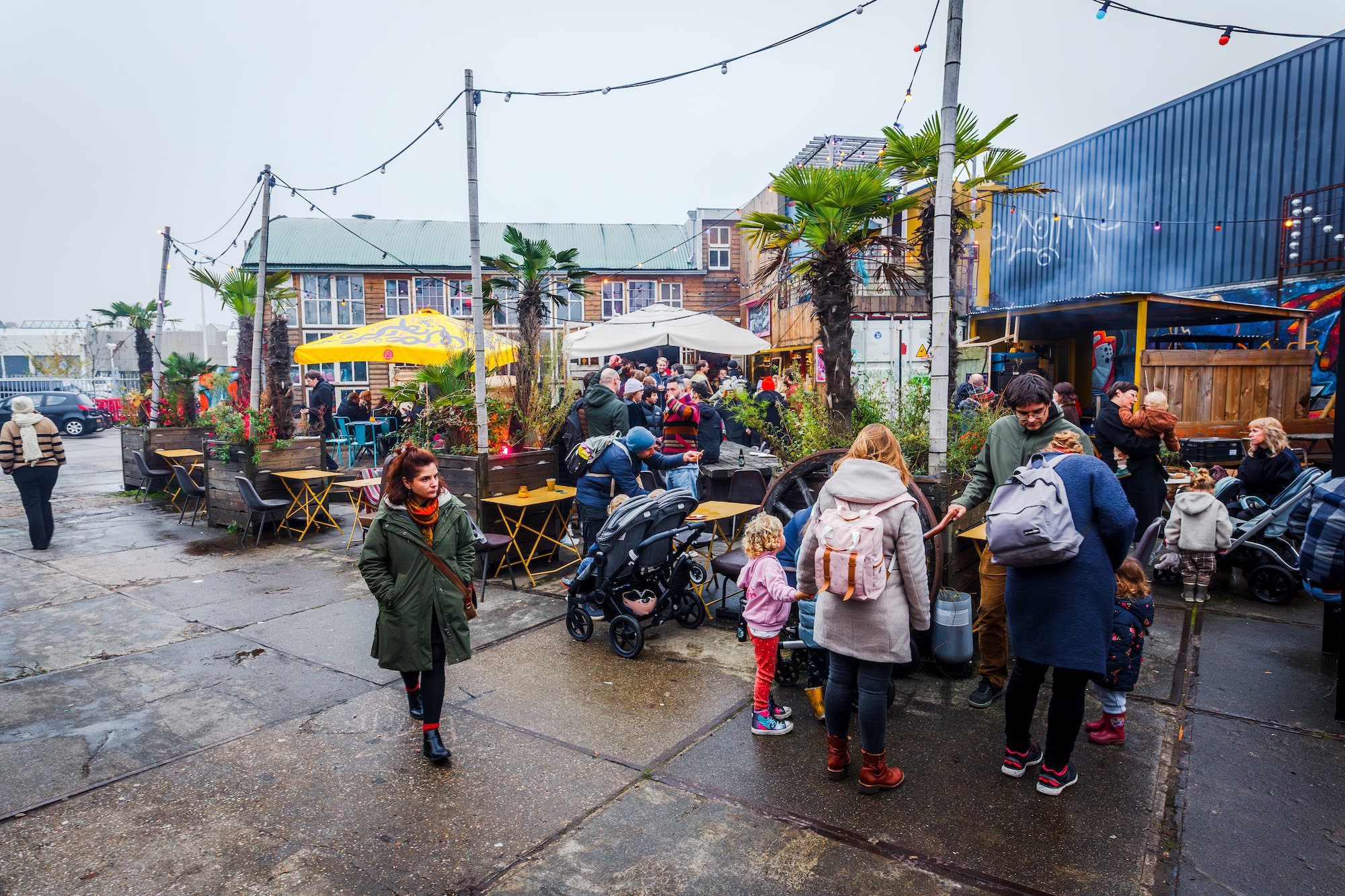
Defne and Insan, thanks for taking the time. Maybe we can start by you telling me a bit about your personal backgrounds and history in community organizing?
Insan
Okay, yeah. I've been involved in community organizing since I was a teenager. It started at this Feminist Collective called “Pisswife”. Before that, I was volunteering for the Street Art Museum Amsterdam as well. After high school, I had a gap year, and I lived in Yogyakarta in Indonesia for three months. There I got in touch with a lot of feminist and queer collectives, and I had a lot of friends who are DJs, too. So I organized my first event there, which was a queer night in which I also DJed for the first time. That's been quite an important moment in my career or life, really.
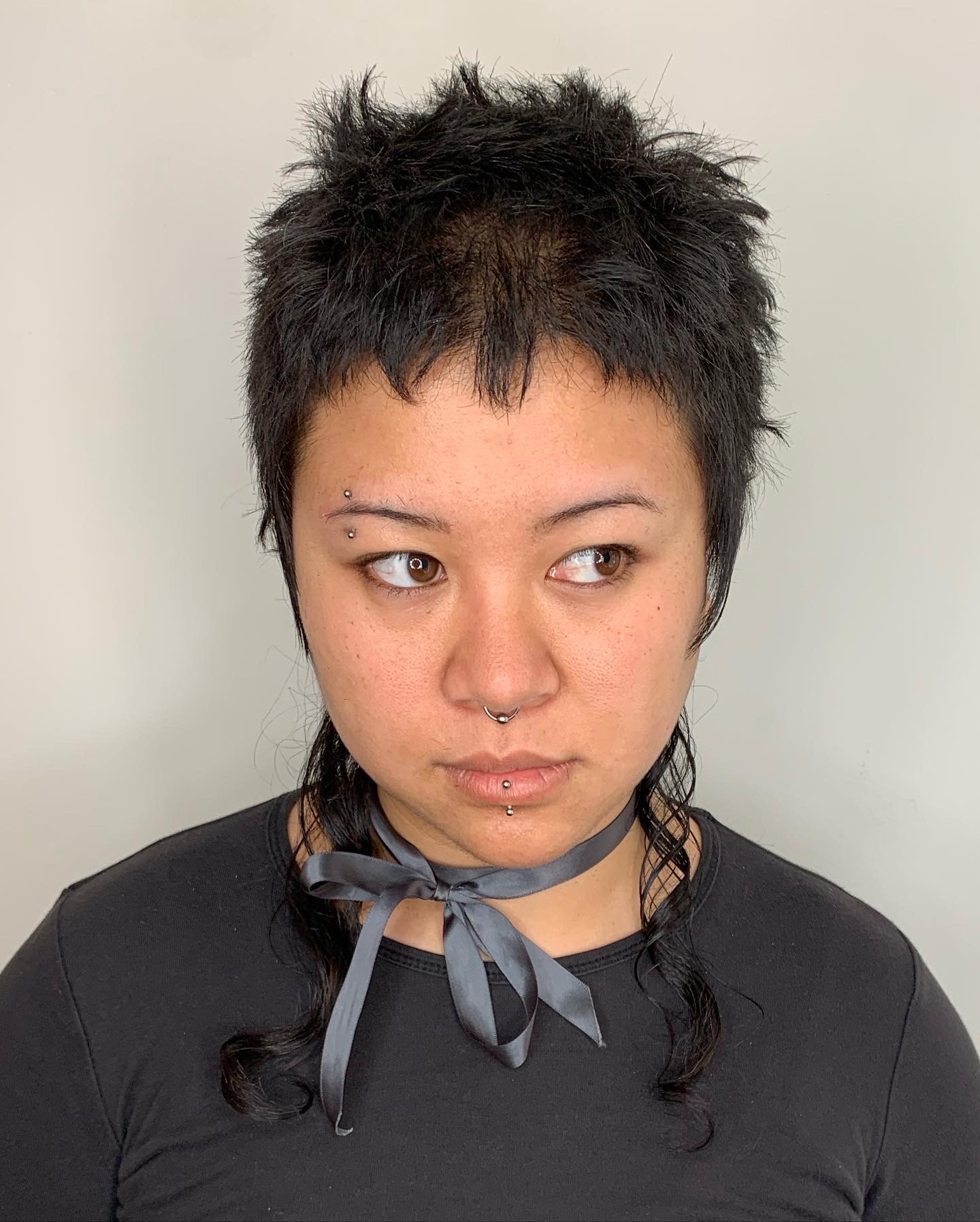
When did you come back to the Netherlands?
Insan
After living in Yogyakarta for three months. I studied graphic design first at the HKU (University of the Arts Utrecht) for a year and then at the Willem de Kooning Academy in Rotterdam. I had a lot of freedom during my studies, and I quickly discovered that just making visuals was not satisfying to me. I was still community organizing, and I started a collective with a couple friends called “Club Hits Different”, which was about showcasing club music that wasn't four-to-the-floor, less serious and more experimental.
How about you, Defne? What made you want to become involved with U?
Defne
I guess for me, it's not per se an artistic practice, as I'm more involved in the organizing aspect of things. I come from Turkey, from Izmir, but I lived in Istanbul before coming here.
And then moving to Utrecht, the meaning of community kind of shifted for me. It was the first time I lived elsewhere without really knowing when I would be going back. Or if I will be going back, in fact. That changes the way you experience a space. In Turkish, there’s this phrase, “Diaspora yaşatır”, which can be translated directly as “diaspora makes a life livable.” I think the diaspora is the main community that brings a sense of home to me, that brings belonging to me. And I think that in that sense, community is so attached to life itself. That's one reason why I'm so excited to be part of U? this year.
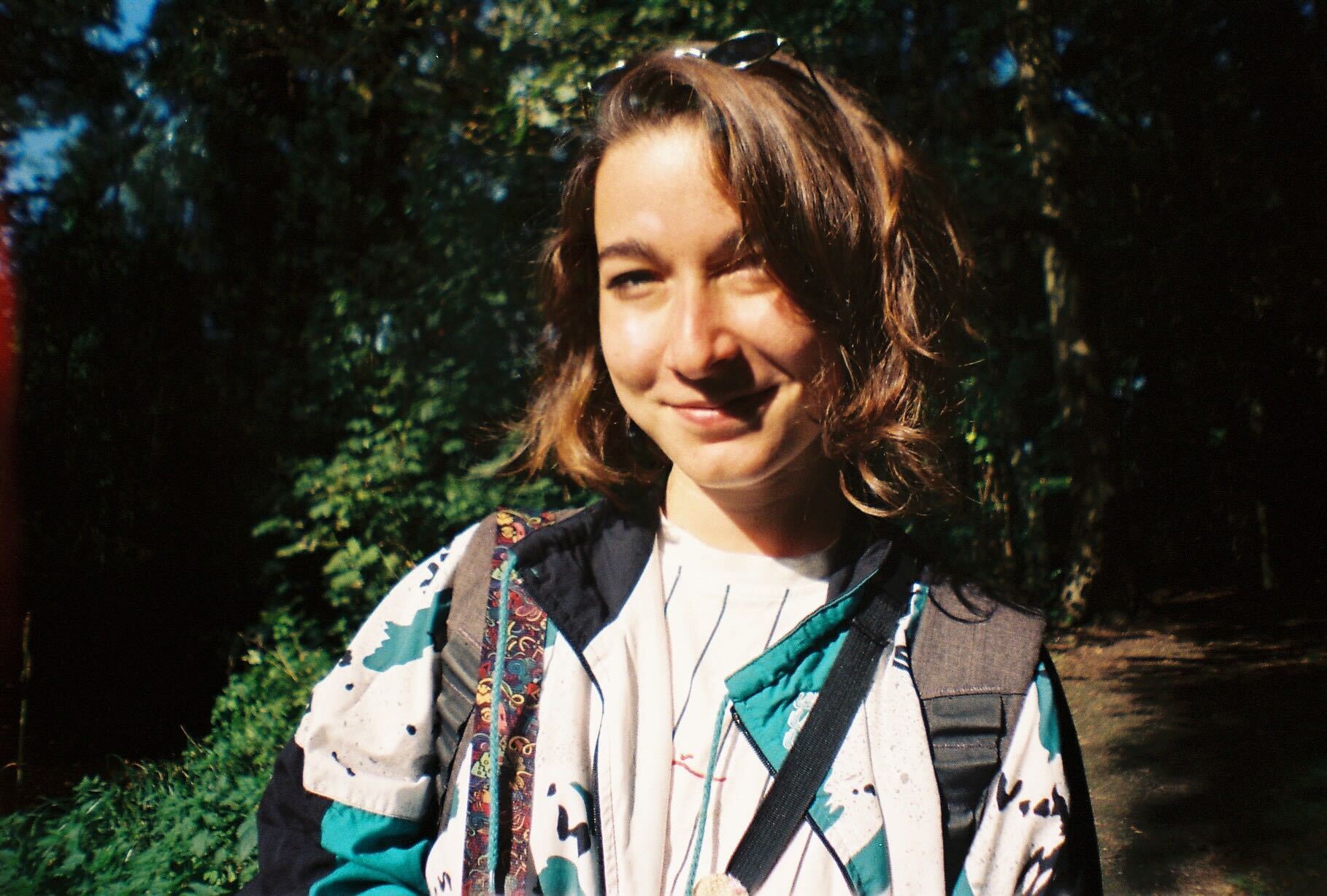
Sounds like moving across different communities is helping you in making more sense of your own identity.
Defne
I think these concepts shape each other in a way. I don't see them as set in stone, fully defined frameworks. I think they’re more fluid, in the sense that they’re ever changing, because our needs are constantly changing. How we perceive ourselves is constantly changing. So it's like a flowing river. The riverbed is there as a foundation, but things are always in motion. The community changes you, while you change the community. And change is not a bad thing in that context, because you feel safe and there's this trust relationship going both ways.
Insan
I think I agree. I've been part of various collectives, and in each one I got to explore a part of myself. Maybe further carve out a part of myself. I still see myself belonging to different communities. In Berlin, for example, I'm part of the Indonesian diaspora, but I guess also the Dutch diaspora. Because of the organizing that I've done with Nusaqueer in the Netherlands, I've met more and more friends who are Indonesian, and queer, and diasporic. I just moved to Berlin a week ago and I think every person that I've hung out with until now in Berlin has been part of that community. The Indonesian queer diaspora as a community is really broad. There's a lot of different histories, different people from different generations of immigrants, who are part of this community. My parents are born in Indonesia and I was born in the Netherlands, so I’m part of the Indonesian diaspora as a second generation immigrant. Another big part of the Indonesian diasproa are people who basically move there for studies or work. It’s kind of new to bring these groups together, you know, first generation immigrants and people who have Indonesian ancestry, sometimes dating back multiple generations.
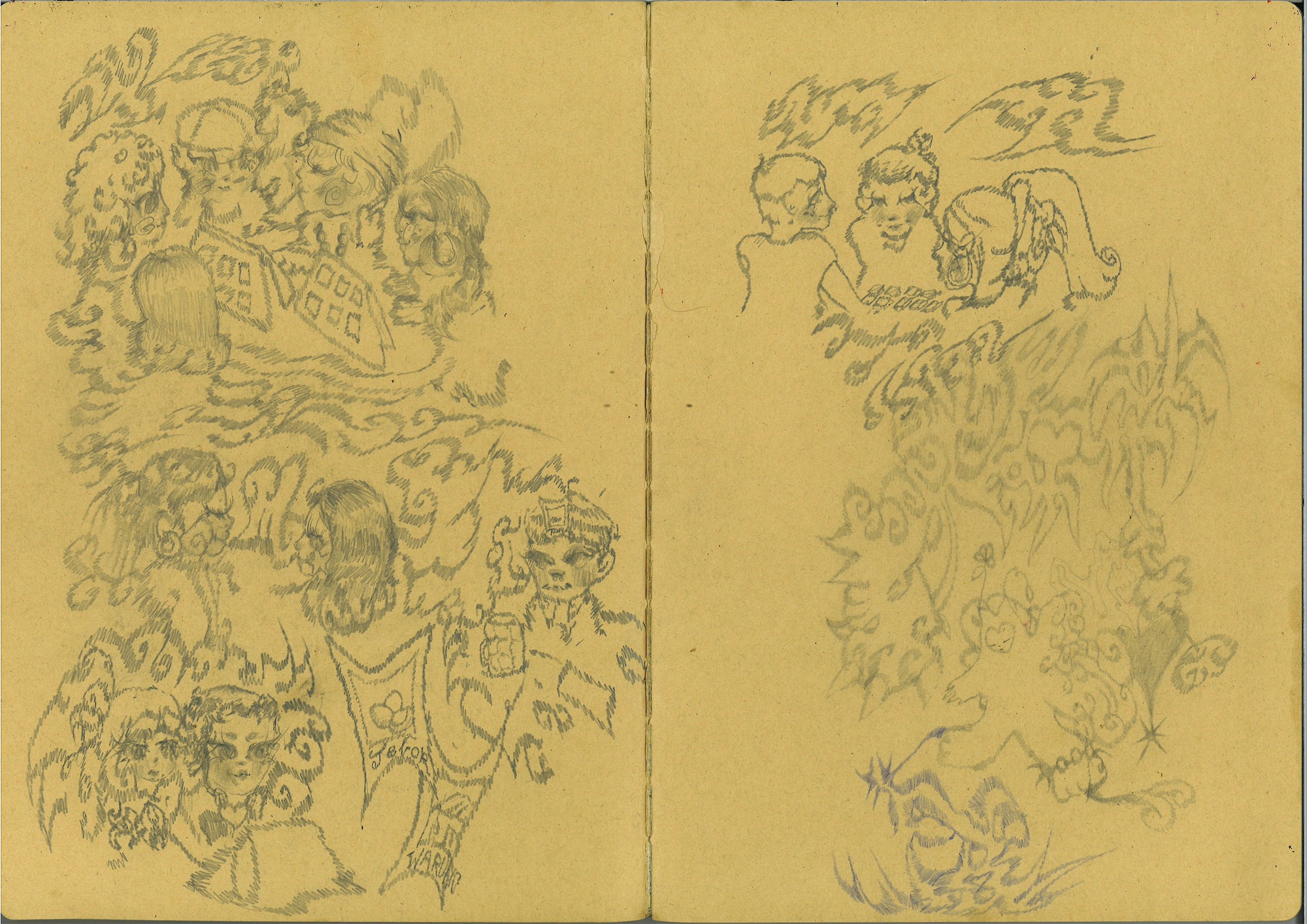
Insan, you mentioned Nusaqueer, which is one of the communities you are organizing. What's the story behind it?
Insan
The first Indoqueer event that I made was because of Reinaart Vanhoe, one of my teachers at Willem de Koning Academy in Rotterdam. He was one of the artists at Documenta fifteen. Me and my friend Shasti approached him saying that during the exhibition, there was not really any representation when it comes to queer Indonesians or the Indonesian queer diaspora. With the help of my teacher, we organized a queer Indonesian club night during Documenta fifteen, with this collective called Party Office, an anti-caste, anti-racist, trans*feminist art and social space from New Delhi. And that was a huge success. We brought a couple of DJs from the Netherlands, Animistic Beliefs and Derozan, to play and we also made sure that we had time to hang out with each other. We booked them for a three day stay or something like that. It was not only about the gig, but it was also about having shared this space with each other. It was such a rewarding experience, that when I came back to the Netherlands, I continued doing that.
Then I started organizing things at spaces like Poing Club, Arcade and Poortgebouw in Rotterdam, all under the name Nusaqueer Diaspora, which basically stands for people from the Southeast Asian archipelago.
On that note: what does it mean to create space for such a community in the Dutch context, specifically?
Insan
It feels really powerful. Indonesian or Southeast Asian and queerness is not something that's often discussed together. I noticed one thing with Indonesian diasporic people from both, the first generation – people who came as students or moved here to work –, and the people with Indonesian ancestry:
I also found that a lot of people have their queer friends, and then they have their Indonesian friends. When we started our nights, I got a lot of nice feedback. A lot of people were just happy that this space existed. It feels very rewarding because I can speak with people of my community on topics of racism, for example, and how this intersects with queerness and certain cultural values that we've been taught at home. It’s very validating to be able to talk about these intersectional experiences with someone who fully understands how it is. And this is where a community of being Southeast Asian archipelagan queer and diasporic comes together. And that feels so, so good, you know.

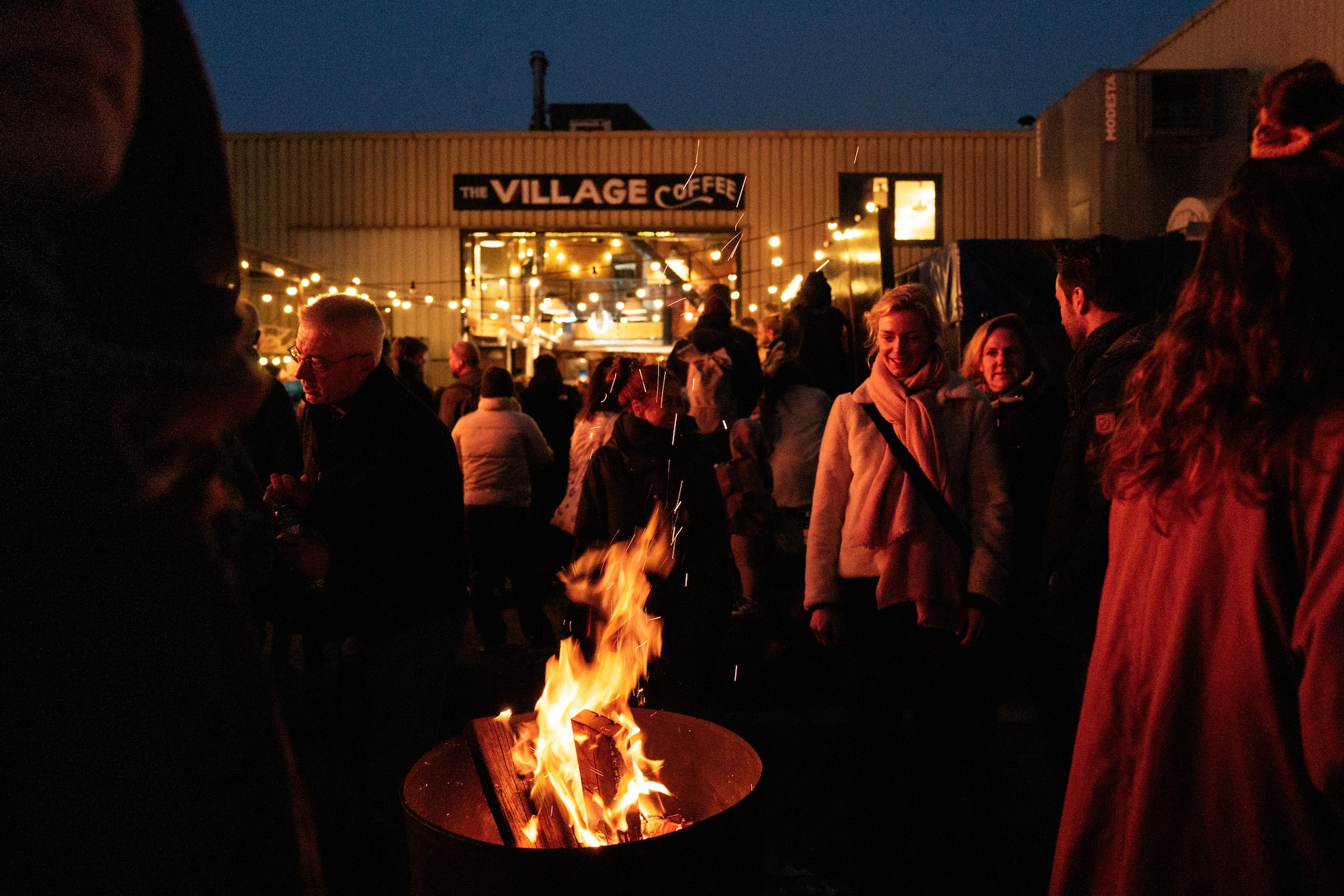
Speaking of specific communities, Defne, what kind of collectives are you hoping to reach with U?. And what kind of vibe are you trying to create at the festival?
Defne
Good point. We don't actually hope to reach a certain community, but rather want to create space for the communities that want to use the space. We don't want it to be this “top down” kind of approach. We want to build it out from the roots together.
Which is what I think makes this festival exciting. We create it together, collaboratively. The same goes for this whole Community Curators pilot that we're doing for the first time this year. We had an Open Call, and people came to us. Communities make it very clear whether or not the given space is urgent for them. It feels like this is the first time where there is no real hierarchy in decision making. There is no clear distinction between the U? team and the community, the curators and the venues, but we all communicate through this same thing. And that I find exciting and fulfilling as well.
Insan, what you will be doing this year at U?, what will you be curating?
Insan
Well, I'm really excited now! We have a 14-hour long Nusaqueer event, which has a day and a night program. It's quite different and like a combination of everything that Nusaqueer has been doing these past few years in one day. Plus some new things. We have this really cool workshop during the day. Defne, how much can I share about…
Defne
I mean, feel free to share!
Insan
Yeah, we have a really cool workshop hosted by Project ITC during the day, which takes inspiration from these queer and trans zines from the 80s in Indonesia. We also have a community dinner, and then an open discussion at the dining table, where we will invite people from different Indonesian queer diaspora communities. Some people who are first-gen, some people who have Indonesian ancestry dating back to multiple generations, Moluccans, Javanese-Surinamese people, all these different communities that come together in Nusaqueer. We will have a karaoke session, because karaoke is a big part of Indonesian and Southeast Asian culture. And then we will have live music performances and DJ sets at night. What I'm also really excited about is a performance by FIQI from Haus of Gabbana. Hause of Gabbana is an important ballroom house from Utrecht, and has a lot of Indonesian diasporic members. One of them, FIQI, is gonna do a dance performance where she will showcase a combination of Lenggang Nyai Dance, a traditional Betawi dance and more modern elements inspired by her ballroom category, ‘Face’. And yeah, of course there's going to be food stalls all day.
Defne
Out of personal curiosity: Even if it's for your own archives only, is there going to be documentation of what has been discussed? I think such conversations do not happen every day, and archival work is crucial when it comes to community, because collective memory is how we work through new challenges.
Insan
Yes, for sure. I want to have at least the sound recording of the open discussion. But it’s a delicate matter, especially for this community. There's a lot of people who aren't out yet to their families, or their friends in Indonesia. So I'm always really careful with images. But the idea for this community dinner is that it will be recorded. I will invite a couple of community members, and then part of it will be open for people to come and join us.
Given how much experience you both have working with communities in different cities, how do you feel about the differences and similarities of fostering subcultures in places like Utrecht, Rotterdam, Berlin…
Defne
Broadly, what we're trying to do is similar in one way or another, but how we do it can be really different. There's some potential in that, and I'm not sure if we’re always taking full advantage of it. I know that we did certain things differently in İstanbul when it comes to mobilizing and community building. I don't really see these practices being implemented in the Dutch context, or in Utrecht specifically. This, to me, opens potential for news conversations. So I definitely think it’s important to maintain connections between different spaces.
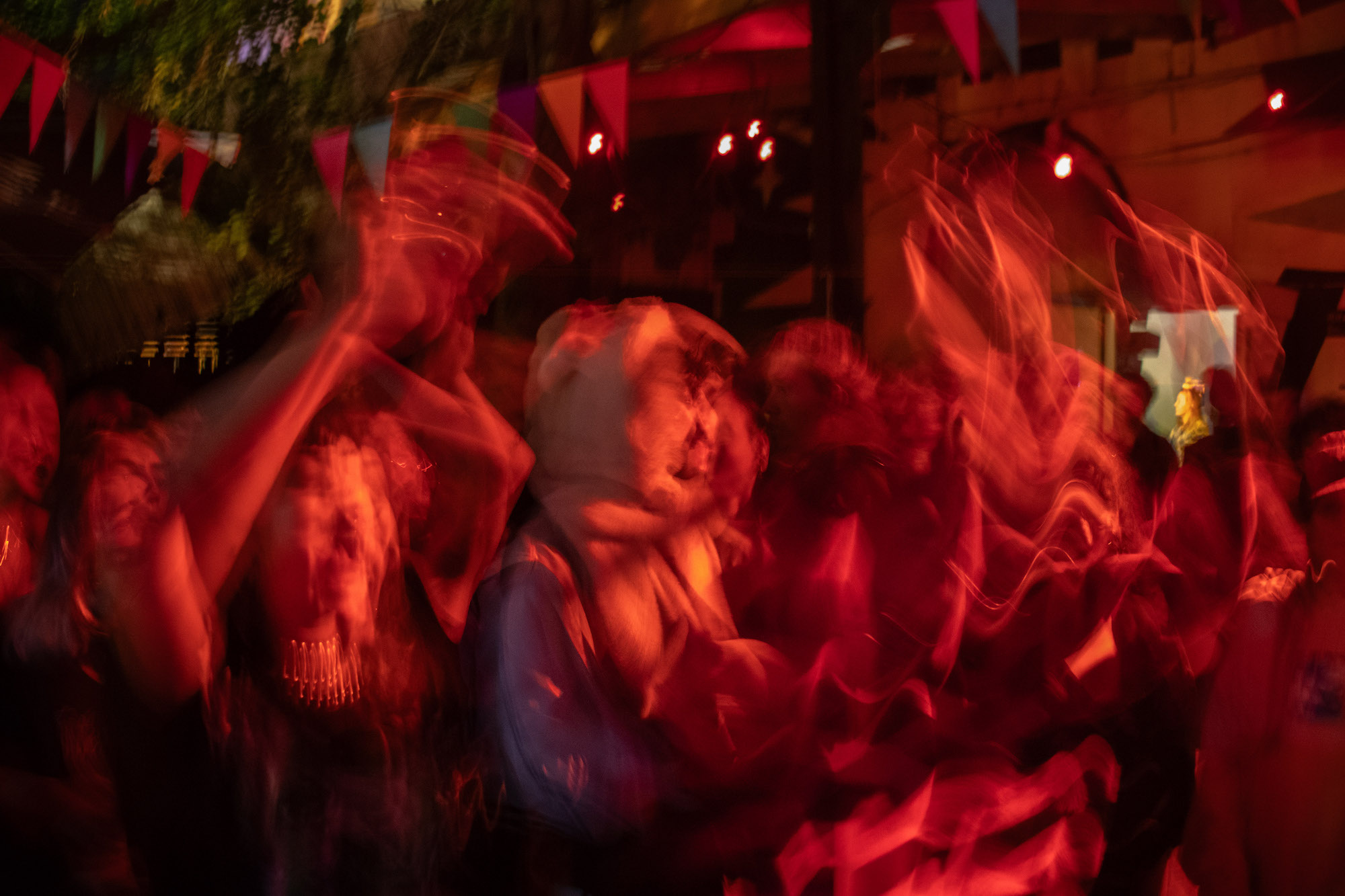
Insan
I work a lot with my community. If I need a photographer for example or a video editor, I always ask in the Nusaqueer community Whatsapp group if someone is interested in the job. In a sense, this approach makes it less exclusive. I always say, if you want to do something, message me; we can work together.
Like, I moved from Utrecht to Rotterdam to Berlin, and the act of organizing is very much influenced by the spaces available in the city. Obviously, the governmental approach is specific to each municipality, too. For example, in Rotterdam these past two years, a lot of community spaces closed down. This really influenced the scene. On the other hand, well I haven’t been to Utrecht for a while, but it looks like it's kinda popping there. In Berlin, because the clubs are quite commercially oriented, you actually need money to organize a club night. It’s all relying on how much communities can grow, as well as on the governmental policies in the city and how that allows spaces to keep existing or have to shut down.
Defne
So much uncertainty around the cultural sector itself, but also around politics... It’s getting more and more intense in so many ways. So when you try to find your ground, also physical grounds, the navigation process becomes more and more difficult. Even though you may already have a concept, a common idea of belonging, and the right people.
Insan
I did notice tho, that the more things get unstable in terms of politics, with the genocide in Palestine, that more people turn to their communities. It’s getting more and more important to be with each other.
On Friday, 8 November, Insan Larasati presents Nusaqueer Diaspora at U?, an event presenting workshops, live music, dance performances, and DJ sets at Tigers Gym.
